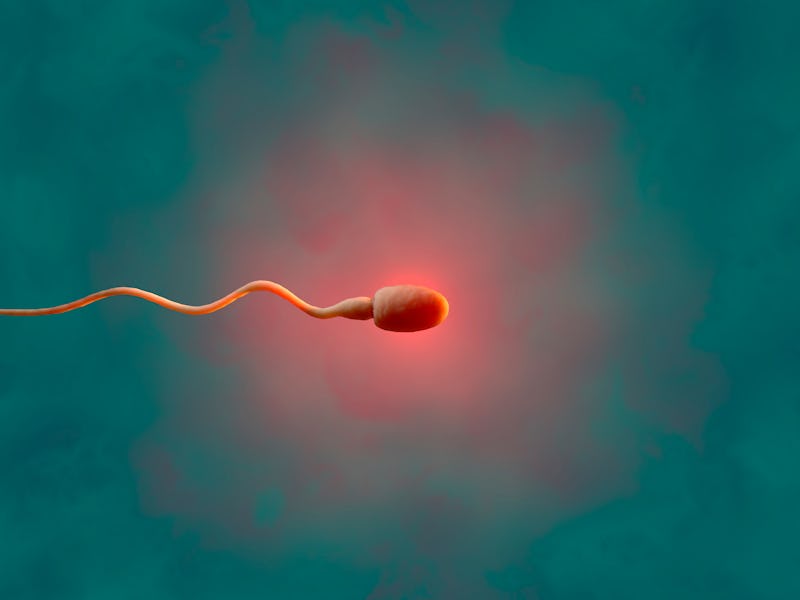Scientists challenge hormone theory of why men need to wait for round two
How is this still a mystery?

There are many great mysteries of science: How did life begin? Is the universe infinite? Why does the male of our species need a rest period after ejaculation before round two?
This third question may not seem as profound as it does profane, but it does indeed baffle scientists.
INVERSE is counting down the 20 science discoveries that made us say “WTF” in 2021. This is #15. See the full list here.
Here’s the deal — After males ejaculate, they enter a “post-refractory period” that can last varying lengths of time depending on the person. But the investigation into why this even happens may have been led astray by a molecular red herring: prolactin.
Prolactin is a hormone involved in both male and female reproduction. It stimulates pregnant women to produce milk, for example. It also relates to orgasms, which for some occur in tandem with ejaculation. Scientists know prolactin spikes during ejaculation and orgasm, leading some scientists to believe it may be the culprit slowing the male body’s ability to get back to it post-nut.
The discovery — A study published earlier this year in the journal Communications Biology challenges this theory — and points to a different culprit. The study shows changing prolactin levels in two types of mice has no effect on the refractory period.
The result suggests that prolactin’s apparent role may be a case of correlation being confused with causation.
“This means it was just correlation,” Susana Lima, the study’s first author, told Inverse at the time. “Causation was never tested.”
If it isn’t prolactin, what is it?
How they did it — Lima is a researcher at the Champalimaud Research Center for the Unknown, a private biomedical research institution. She and her team studied mice with a short refractory period and mice with a refractory period lasting seven days. The team drew blood from the male mice at four moments:
- Before meeting female mice for the first time
- After initially mounting their sexual partner
- After a number of mounts
- Post-ejaculation
The blood samples revealed prolactin does spike during sexual activity, but prolactin didn’t affect the refractory period.
In subsequent experiments, the team artificially altered prolactin in each male mouse’s blood before sex. Changing the prolactin levels didn’t change the mice’s sexual behavior, which may mean prolactin isn’t necessarily a hormone that inhibits sex.
Additionally, the authors blocked prolactin release post-ejaculation. This change didn’t shorten the refractory period, either.
Why it matters — Humans are not mice, but though the prolactin theory may yet hold up in humans, Lima says that prolactin has similar functions in people and mice so she expects consistent results. But the results suggest a different, more nuanced theory of male sexual function: There are multiple systems and hormones in the body that are involved in the refractory period, and individuals may differ depending on their unique circumstances.
The two main systems at play are a central brain mechanism and a peripheral one. The central mechanism deals in behavioral elements, like sexual human desire, while the peripheral one affects physical elements like the penis, glands, and other sexual function organs.
“Most likely, both central systems and peripheral systems are working in coordination, such that the male doesn’t have an erection with no desire or desire without being able to be erect,” Lima says.
INVERSE is counting down the 20 science discoveries that made us say “WTF” in 2021. This is #15. Read the original story here.
This article was originally published on